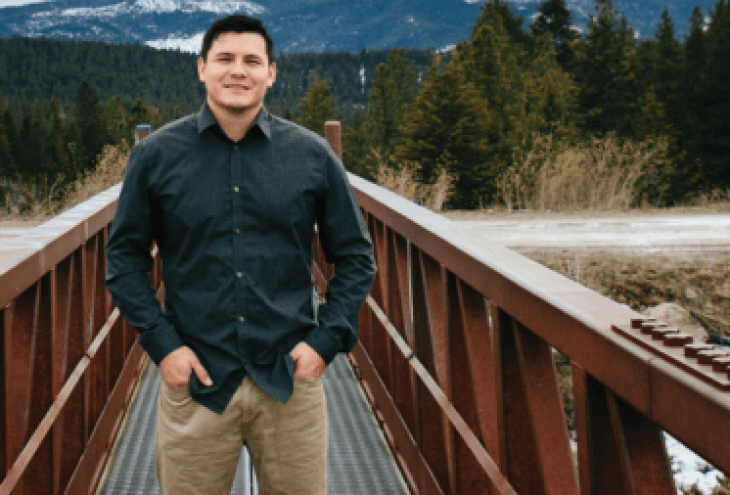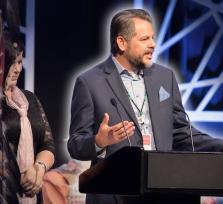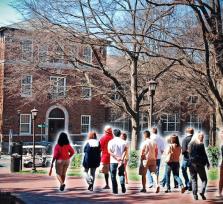Before college, Cody Natoni Sifford, Navajo, had never considered a degree — not to mention a career — in environmental science. It was actually his family who encouraged him to try out the environmental science program in college. Then from the moment he set foot in his first class, he knew he had made the right decision.
Growing up in rural Huntley, Mont., he spent most of his free time hiking and camping in the mountains with his family. Sifford had always loved being outside and been curious about the natural world. He worked hard taking care of cattle and horses on his family’s farm, but his parents always stressed the importance of education.
His mother was raised on a Navajo reservation, and both she and his father grew up in low-income environments. They persevered and both earned college degrees and are now working in the medical field. His parents instilled in him the drive to get a higher education. “They saw my sister and me succeeding by earning a degree and working in fields where we used our brains, not our backs,” he says.
Sifford attended a very small, rural grade school and high school. The school system had many passionate, caring teachers but lacked the resources to connect students with available opportunities. He didn’t get introduced to many career paths, nor did he have access to specialized classes in technology and the sciences. “My school simply did not have the resources that larger schools do,” he explains. “But I was lucky in that my parents continuously encouraged me to pursue a higher education.”
Applying to college was a difficult process, made even more so because of the financial burden it put on his family. Sifford considered a college degree to be an investment in himself and was able to secure scholarships and fellowships to help finance his education. As a result, he is a strong advocate for the assistance that scholarships and fellowships can provide.
Once Sifford started at Salish Kootenai College he encountered a range of new problems, including trying to figure out what his major would be. “My parents knew that I had always had a love of nature and the outdoors, and they urged me to consider pursuing a degree in a related field,” he says. “My first environmental science class was eye-opening, and it showed me that there is so much about the world that I did not know.”
As soon as Sifford found the environmental science program, he wanted to devote all his time to it. “Being required to take classes that were not in my field of interest was difficult,” he recalls. “But I just kept telling myself to push through until I saw the light at the end of the tunnel.” Graduate school at the University of Washington Seattle was an even bigger change for Sifford, requiring a move far away from home. “I was definitely homesick,” he says. “I did not like urban life, and the school was much larger than what I was used to. Thankfully, the UW School of Environmental and Forest Sciences is extremely supportive of Native students, and they did everything they could to help me achieve my goals.”
Without the help and support from his professors, the UW Center for International Trade in Forest Products, and the Northwest Advanced Renewables Alliance, Sifford says that he would never have flourished at SKC and UW as he did. SKC and the American Indian Higher Education Consortium were responsible for helping him secure multiple internships during his undergraduate career, including a few with NASA. “Those internships taught me so much I didn’t know about my field, and have made me a more well-rounded individual in both my field and overall,” he says.
Sifford graduated with a master’s degree in forest resources. He spent a quarter as an adjunct professor at SKC and currently is doing contract work with the Confederated Tribes of Salish and Kootenai forestry department as a geographic information systems analyst in northwest Montana.
Sifford’s path has had its challenges, but he would not change it. “I cannot count the number of times as a student that I told myself I just needed to keep going, that one day all the class work and homework would end,” he says. “Being in college is a unique opportunity.”
By way of encouraging others to pursue higher education, Sifford says that college is not just about passing some classes — it’s a whole experience where you learn life skills, network and meet people, and form relationships. “It’s impossible to fabricate the knowledge that a student receives when going through undergraduate and graduate school,” he adds. “The college experience molded who I am today and has made me a wiser person. I hope students from similar backgrounds will be inspired to pursue a higher education, because once you earn that degree, no one can take that away from you.”











